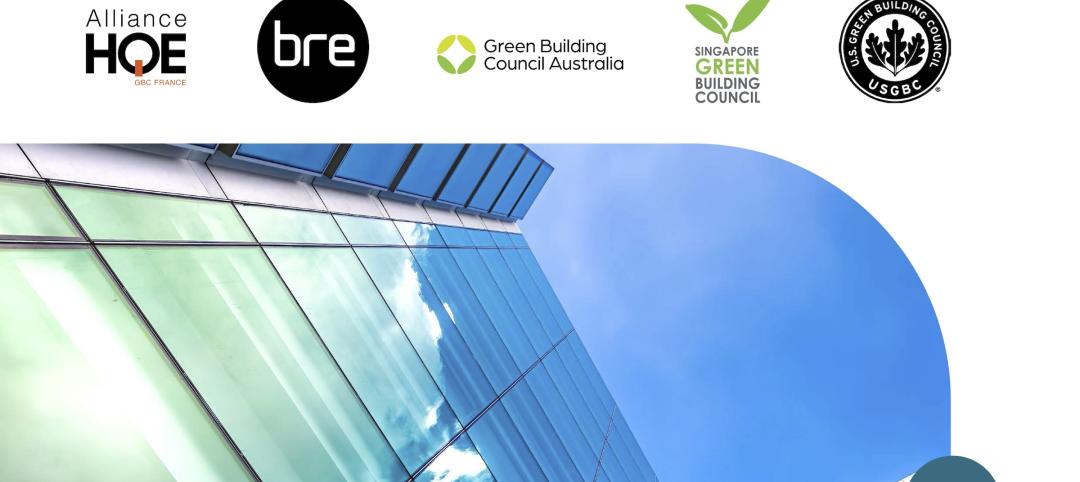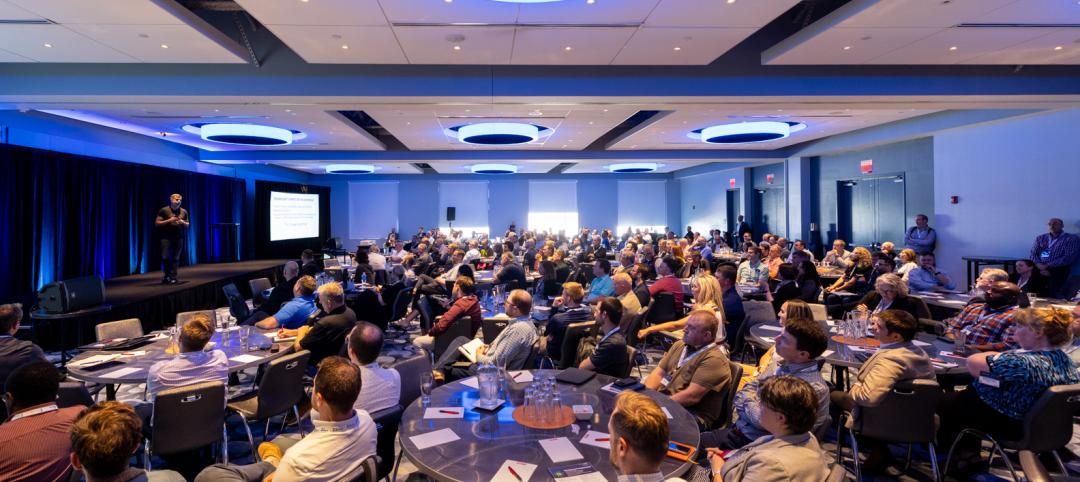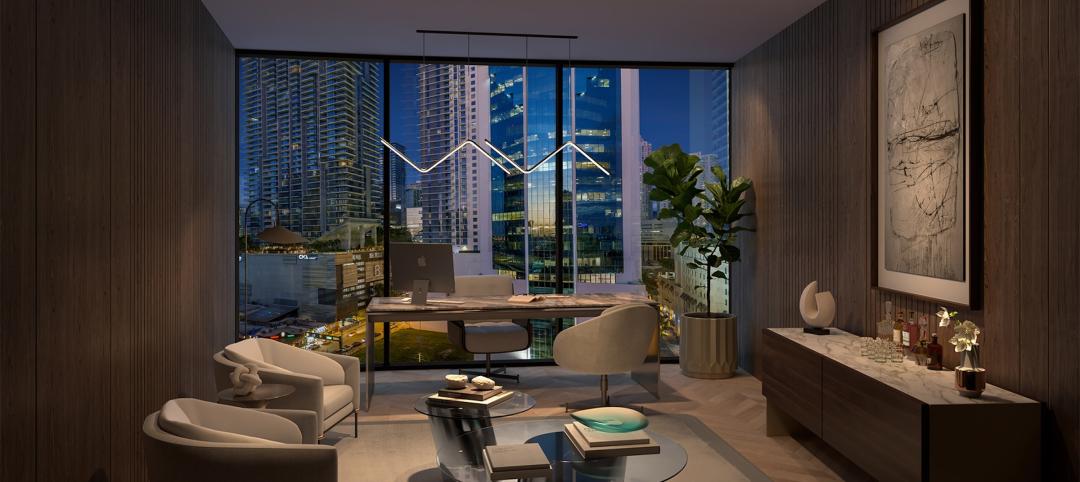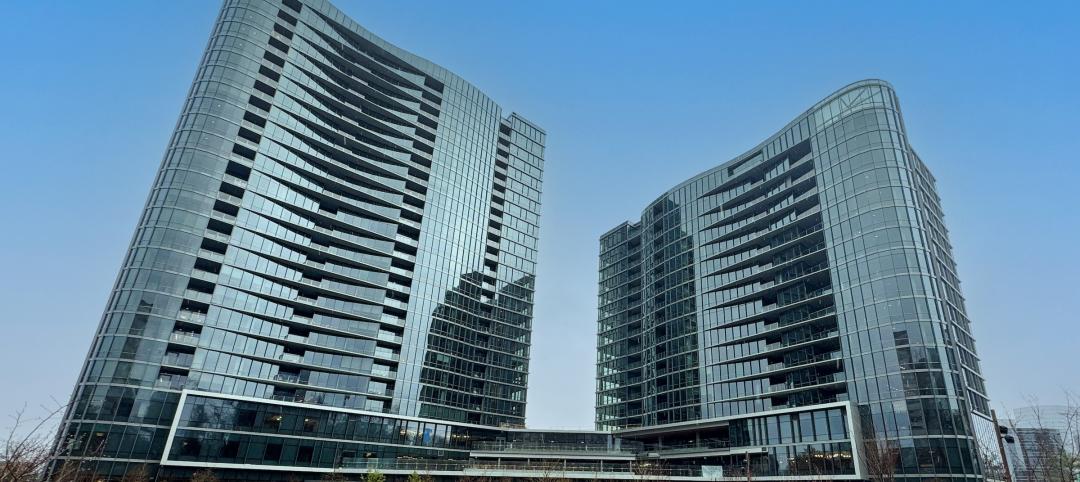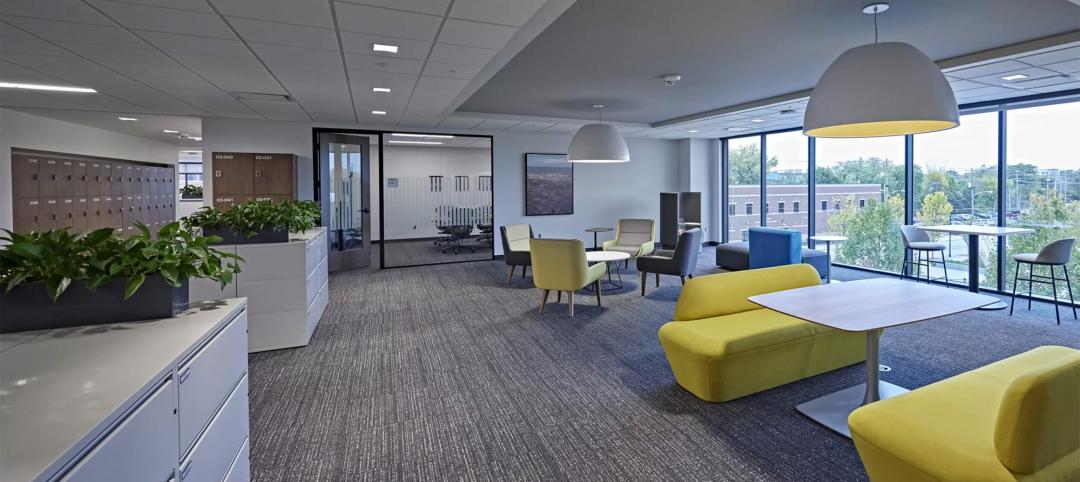The Green Building Initiative (GBI) today announced the launch of a new certification program specific to design of interiors of commercial and institutional buildings, according to GBI president Jerry Yudelson.
The new program, Green Globes for Sustainable Interiors, focuses exclusively on the sustainable design and construction of interior spaces in non-residential buildings and can be pursued by both building owners and individual lessees of commercial spaces. When pursuing Green Globes for Sustainable Interiors certification, tenants can focus on both designing new and/or improving their existing interior space to Green Globes standards without the need to certify an entire building.
“One of the aspects that makes Green Globes for Sustainable Interiors so versatile–and practical–is that it enables tenants to certify the specific environmental and sustainability attributes of the space they lease,” Yudelson said. “Other certifications include aspects of the entire building and surroundings, and as a result, tenant improvements can be penalized for conditions they do not control.”
As with all Green Globes rating programs, Green Globes for Sustainable Interiors utilizes a third-party assessor who reviews actual building characteristics and documentation. However, Green Globes for Sustainable Interiors has no prerequisites, which – if required – could unfairly penalize building projects and possibly result in their inability to use a green building rating system. The Green Globes for Sustainable Interiors program requires that interior designers and tenant project teams address only those sustainability criteria within their “domain of influence.”
The Green Globes 1,000-point scale utilizes weighted criteria; the assigned number of points for individual criteria reflects their relative impact and/or benefit to sustainability of the tenant improvements. Green Globes for Sustainable Interiors includes six environmental assessment areas: Project Management, Energy, Water, Materials & Resources, Emissions and Other Impacts, and Indoor Environment.
In addition to assessing all elements of an interiors project, Green Globes for Sustainable Interiors emphasizes the key performance indicators (KPIs) of energy, materials and indoor environment. Green Globes for Sustainable Interiors does not deal with site characteristics, instead focusing all criteria on parameters within the scope of a typical tenant improvement, resulting in lower costs for certification.
Similar to the Green Globes for New Constuction program, Green Globes for Sustainable Interiors includes a dual-pathway approach to materials choices for interior fit-outs, utilizing either lifecycle assessment (LCA) or Environmental Product Declarations (EPDs). Interior designers are rewarded for using multi-purpose furniture, modular furniture and casework solutions, and other interior fit-out elements that can be easily reconfigured. Additional points are awarded for reuse of existing interior fit-outs, including finishes, furnishings, and other non-structural elements. The Green Globes for Sustainable Interiors rating system also includes direct reference to other industry standards such as the new “level” sustainability standard of the Business and Institutional Furniture Manufacturers Association (BIFMA).
“The Green Globes for Sustainable Interiors program will be especially attractive to tenants who want to improve their workspace sustainability in situations where a landlord does not plan to address changes in other tenant or common spaces,” Yudelson said.
For more information on Green Globes for Sustainable Interiors visit http://www.thegbi.org/green-globes/sustainable-interiors.shtml, or download a PDF on the program here: http://thegbi.org/URL
About the Green Building Initiative
The GBI is a nonprofit organization and American National Standards Institute (ANSI) Standards Developer dedicated to accelerating the adoption of green building practices. Founded in 2004, the organization is the sole U.S. provider of the Green Globes® and federal GBI Guiding Principles Compliance building certification programs. To learn more about opportunities to become involved in the GBI, contact Jerry Yudelson or visit the GBI website, www.thegbi.org.
Related Stories
Green | Jul 8, 2024
Global green building alliance releases guide for $35 trillion investment to achieve net zero, meet global energy transition goals
The international alliance of UK-based Building Research Establishment (BRE), the Green Building Council of Australia (GBCA), the Singapore Green Building Council (SGBC), the U.S. Green Building Council (USGBC), and the Alliance HQE-GBC France developed the guide, Financing Transformation: A Guide to Green Building for Green Bonds and Green Loans, to strengthen global cooperation between the finance and real estate sectors.
Codes and Standards | Jul 8, 2024
New York State building code update would ban fossil fuels in new buildings
New York’s Building Code Council is set to include the All-Electric Buildings Act in its 2025 code update. The Act would ban natural gas and other fossil fuels in new buildings.
AEC Tech Innovation | Jul 4, 2024
Caution competes with inevitability at conference exploring artificial intelligence for design and construction
Hosted by PSMJ, AEC Innovate in Boston found an AEC industry anxiously at the threshold of change.
Building Team | Jul 3, 2024
So you want to get published: What’s next?
In the AEC industry, securing media attention is no longer a niche endeavor but an essential component of a holistic marketing strategy.
Laboratories | Jul 3, 2024
New science, old buildings: Renovating for efficiency, flexibility, and connection
What does the research space of the future look like? And can it be housed in older buildings—or does it require new construction?
MFPRO+ New Projects | Jul 2, 2024
Miami residential condo tower provides a deeded office unit for every buyer
A new Miami residential condo office tower sweetens the deal for buyers by providing an individual, deeded and furnished office with each condo unit purchased. One Twenty Brickell Residences, a 34-story, 240-unit tower, also offers more than 60,000 sf of exclusive residential amenities.
Student Housing | Jul 1, 2024
Two-tower luxury senior living community features wellness and biophilic elements
A new, two-building, 27-story senior living community in Tysons, Va., emphasizes wellness and biophilic design elements. The Mather, a luxury community for adults aged 62 and older, is situated on a small site surrounded by high-rises.
Office Buildings | Jul 1, 2024
Mastering office layouts: 5 primary models for maximum efficiency and productivity
When laying out an office, there are many factors to consider. It’s important to maximize the space, but it’s equally important to make sure the design allows employees to work efficiently.
Smart Buildings | Jul 1, 2024
GSA to invest $80 million on smart building technologies at federal properties
The U.S. General Services Administration (GSA) will invest $80 million from the Inflation Reduction Act (IRA) into smart building technologies within 560 federal buildings. GSA intends to enhance operations through granular controls, expand available reporting with more advanced metering sources, and optimize the operator experience.
Sustainability | Jul 1, 2024
Amazon, JPMorgan Chase among companies collaborating with ILFI to advance carbon verification
Four companies (Amazon, JPMorgan Chase, JLL, and Prologis) are working with the International Living Future Institute to support development of new versions of Zero Carbon Certification.


